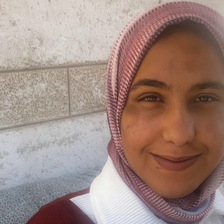The Electronic Intifada 4 November 2025

A woman looks after her sick child in a tent in Khan Younis, southern Gaza, in March 2025.
ActiveStillsI found out that I was pregnant at the beginning of May, after a blood test. I was tired, exhausted, dizzy and had been fainting a lot. I was also losing weight. I attributed these symptoms to famine, as many of us in Gaza had been experiencing these exact same things because we could not get enough food to eat.
It turns out, my symptoms were from both. I was pregnant and starving.
When my relatives found out about my pregnancy, they looked at me with sympathy and, sometimes, remorse. Their looks said, how could you do this to yourself and your baby?
My cousin, who is a science teacher, said it was a careless and crazy decision to be pregnant.
She had been upset when another relative was pregnant the previous year and now she was upset to know that she would be getting a new cousin this year.
Everything around us is polluted and dangerous, she said, and there is a severe shortage of food and all supplies.
How would one care for a newborn in this environment, when we struggle to care for ourselves?
My cousin was right. I could not argue with her.
Few could understand that though I did not want a pregnancy, I had accepted that it would be so. It is a gift from God, and there is a reason behind it.
Perilous situation for newborns and mothers
I know personally of tragic stories around birth and newborns.
For example, a relative of mine through marriage gave birth to a beautiful baby girl in July, but the child died 10 days later, as she had two chambers in her heart instead of four.
Even before the genocide, there was concern around the health of newborns in Gaza, as Israel has poisoned our soil with its bombs.
We now know that from January to June 2025, according to the UN, “at least 20 newborns died within 24 hours of birth.” Also in that period, 33 percent of newborns, around 5,560, “were born prematurely, underweight or required admission to neonatal intensive care.”
More alarming is that over the past three years, it is estimated that the birthrate in Gaza declined over 41 percent.
My firstborn, Majd, has grown up in the genocide. He was born three years ago, but during my pregnancy then, I was able to eat a range of healthy food and vitamins.
At the end of August, new products entered Gaza’s markets for resale following procurement at the perilous Gaza Humanitarian Foundation distribution sites, but it was mostly canned food.
The situation has slightly improved since the October 2025 “ceasefire.”
More food was permitted to enter Gaza, like vegetables and nuts, but large amounts of aid were still being blocked by Israel and the prices were still incredibly high at the market for red meat and chicken.
My daily diet now is rice, pasta and lentils. I am lucky to eat a tomato, a cucumber or a potato.
Living in a shell of a home
I’m in my seventh month of pregnancy, and the doctors have told me we are having a girl. I have frightening thoughts of being displaced to the south and giving birth in a tent in the cold of winter.
My son, husband and I have been displaced since 2023. Our apartment in Jabaliya in northern Gaza was partially destroyed by Israeli attacks in December 2023, and then in October 2024 it was completely destroyed.
In mid-September of this year, we were displaced to Khan Younis after an Israeli evacuation order for the Tal al-Hawa neighborhood of Gaza City. I had felt the danger of the Israeli attacks acutely when stones and chunks of concrete from our house fell next to my son while he was sleeping.
We have now moved back to Tal al-Hawa, to my uncle’s house, a burnt shell that is covered with tarps. Half of the house is destroyed, while three rooms remain that have walls.
I think the poor condition of this home is why I’ve been coughing and experiencing a tightness in my chest.
I’m afraid of having to evacuate yet again at the last minute. I’m afraid of the hospital not having the proper equipment to ensure a safe birth. I’m afraid of the far future and the coming days. Over these years of genocide, I have become a person who is afraid of life.
I used to think of improving myself and seeking knowledge, of writing important journalism from Gaza. Now all I think of is what products will enter Gaza today and whether we will be able to afford them.
Days pass slowly, and the news on the ground is confusing; on one channel I hear that negotiations have been a success and on another I hear that Israel is occupying more parts of Gaza.
I am tired of thinking and displacement and this exhausting life.
Hanin A. Elholy is a researcher, writer and translator based in Gaza.





